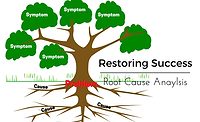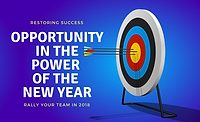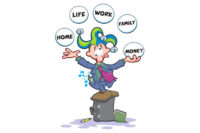The art of interviewing the customer is a critical skill for the professional restorer. The first interview will provide you important information necessary in the delivery of your services as well as an opportunity to establish trust between you and the customer. Barbara Walters is known to us as having mastered the interview process and although the purposes are different, the techniques can be similar. TV Interview Tips by Glenn Halbrooks presents four things to consider:
- Decide what you want from an interview
- Listen closely during the interview
- Ask follow-up questions in the interview, and
- End the interview by allowing the person to speak freely.
When the phone rings at your company, the first critical step in managing that job has begun. The person who conducts the interview should be trained on the various types of losses/calls, be able to show empathy and care over the phone, answer questions and gather critical information. The person in your company who is assigned the job as “interviewer” can gain valuable skills from attending restoration-related classes or cross training within your company. It can be very frustrating for any customer to be interviewed by a person who can’t answer simple questions or does not seem to understand the context of their questions.
The need for good interviews throughout the process of a restoration response is critical. Although the focus will be on the initial interview, consider utilizing similar interview skills and techniques as the first step in the contents restoration process, the reconstruction phase and other applicable points.
Because a good initial interview will allow you to start a good relationship with your customer based on open communication and trust, we have to always remember not to become desensitized to them and their needs. Many of our customers have never had any kind of disaster, large or small, happen to their property and you have to be well prepared to guide the interview. The initial interview may often be the first impression of your company and your expertise. The interview process can allow you to respond and provide services in the most efficient and effective manner possible. Consider a water loss - by having a strong initial interview, you can determine the category, possibly determine the class and determine the affected area, which allows you to set a protocol, determine supply and equipment needs and prepare the response team before you even take a step out the door.
If we are to approach the interview in the world of restoration as a TV interviewer would and break down these tips, we can walk away with some good advice.
Decide What You Want From the Interview
- Facts and Information: Name, addresses, contact, preferred method of contact, date, referral source. I make it protocol to get phone numbers immediately in the interview in case there is a disconnect for any reason.
- Insurance Information: Carrier, adjuster, policy, agent and related contact information. Was this loss reported to the carrier? Is there a claim number?
- Loss Information: Cause of loss, date of loss, extent of loss, types of materials affected, types and quantities of contents.
- Other: This is any additional information that is pertinent to the loss or rendering of the services. It is good for all personnel to be trained to understand the concept of “meaningful contact.” All meaningful contact should be documented and recorded. Examples can range from: “Beware of dog in rear yard” to “A resident has a chemical sensitivity – review all products used with property owner before application.”
In general, your company should maintain a standardized form (digital or hard copy) as the primary tool for collecting and recording information.
Listen Closely During the Interview
You can gain valuable insight and information regarding the circumstances if you listen carefully. Again, being aware and trained on meaningful contact is important. As noted in the article for TV interviewers, be cautious of being so focused on your next question that you are not listening to all the pertinent information being communicated to you. Examples may range from a potential insurance coverage issue regarding the loss to the reference to a sentimental piece of furniture that is important to your customer.
Ask Follow-Up Questions in the Interview
The trained interviewer who is listening closely should be able to ask follow up questions that apply to the situation. Examples:
Customer: I was away on vacation and came home to water in my finished basement and I have no idea when it happened.
Interviewer: How long were you away?
Customer: I was away for eight days and just returned home today.
Interviewer: Do you notice any unusual odors?
This is a very simple example that could give us insight as to the potential presence of microbial growth which could affect insurance coverage and will affect the protocol followed for the services. Follow-up questions can be the key to gathering the information that you decided you want from the interview.
End the Interview by Allowing the Person to Speak Freely
Consider closing the interview by asking open-ended questions. Examples:
- Is there anything else you would like to tell me about your loss?
- Do you have any questions at this time?
As with every protocol or standard operating procedure in the industry, good judgment should always prevail. There will be times that you can’t get all the information that you would like during the initial interview or it may be inappropriate due to the situation. All information may not be accurate and must be taken in context of the call and the loss. The key is to develop the skill of interviewing in your team as you would all other skills. Forms, procedures, training and practice (try practicing with mock phone calls) utilized in the interview process will serve your organization well.





Report Abusive Comment